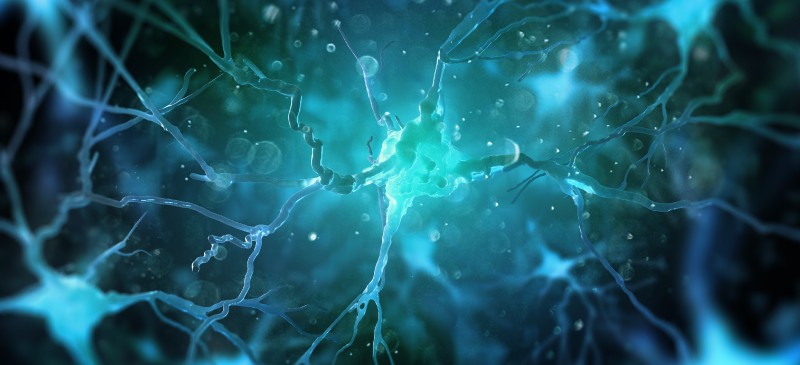This Dr. Axe content is medically reviewed or fact checked to ensure factually accurate information.
With strict editorial sourcing guidelines, we only link to academic research institutions, reputable media sites and, when research is available, medically peer-reviewed studies. Note that the numbers in parentheses (1, 2, etc.) are clickable links to these studies.
The information in our articles is NOT intended to replace a one-on-one relationship with a qualified health care professional and is not intended as medical advice.
This article is based on scientific evidence, written by experts and fact checked by our trained editorial staff. Note that the numbers in parentheses (1, 2, etc.) are clickable links to medically peer-reviewed studies.
Our team includes licensed nutritionists and dietitians, certified health education specialists, as well as certified strength and conditioning specialists, personal trainers and corrective exercise specialists. Our team aims to be not only thorough with its research, but also objective and unbiased.
The information in our articles is NOT intended to replace a one-on-one relationship with a qualified health care professional and is not intended as medical advice.
The Chemical Imbalance Theory … Or Is It a Myth?
February 13, 2018

Throughout the checkered history of psychotropic drugs, one theory has been perpetuated: Many people believe means that the risks still outweigh the benefits of these psychoactive drugs, at least when it comes to depression. It’s commonly known as the “chemical imbalance theory,” and was postulated in 1965 by Dr. Joseph Schildkraut, a Harvard psychiatrist.
According to one of his collaborators, Dr. Alan I. Green of Dartmouth Medical School, his theory was particularly important because identifying the chemical imbalances that cause certain psychiatric disorders would allow doctors to “identify different subgroups of patients with similar disorders through the study of biochemical processes.” (1) The original hypothesis was that depression was correlated with low norepinephrine and serotonin levels.
The Reality Behind the Chemical Imbalance Myth
The problem with the chemical imbalance theory is that it has never been proven — in fact, many studies on the subject have come to the exact opposite conclusion. While formulated on the basis that SSRIs (selective serotonin reuptake inhibitors) had mild effectiveness on relieving depression, Jeffrey Lacasse, PhD, and Jonathan Leo, PhD, explain in a 2005 study published in PLoS Medicine that this assumption was a false presumption (for example, aspirin relieving a headache doesn’t necessarily point to low aspirin levels). (2)
Two major points Leo and Lacasse make in this breakthrough piece are that:
- Administering high dose L-tryptophan (an amino acid) to raise serotonin does not relieve depression. High doses of this are considered possibly unsafe when taken in supplement form, although small doses (that do not raise serotonin levels significantly) are thought to be safe. (3, 4)
- Bottoming out serotonin levels does not induce depression. While many attempts have been made, none are successful in inducing depression by causing the so-called “chemical imbalance” that many believe causes the condition. (5)
Ultimately, the authors explain that it is a “mistake” to claim neuroscience’s achievements in any way support the serotonin hypothesis. If such an imbalance existed, it would, by now, be quantifiable, testable and consistent. (2)
One reason they are so concerned with the perpetuation of this theory is that it is misleading to consumers, who are consistently reminded in advertising for psychotropic drugs like antidepressants that their mental illness is the result of a “chemical imbalance.” The FDA has not yet cited any pharmaceutical company for this false advertising, and Drs. Lacasse and Leo believe it to be a “deliberate decision, not an oversight.”
In another piece by the same authors, media reports and scientific papers (along with “other confirming evidence”) are reviewed regarding this theory and the way the media has continued to repeat this false mantra. (6)
Even the American Psychological Association (APA) admitted this hypothesis was incorrect in 2007, although it is still regular practice, over a decade later, to teach psychology and psychiatry students this disproven “chemical imbalance” theory. Paul H. Lysaker, PhD, Christopher M. France, PhD, and Ryan P. Robinson, MA, published “The ‘Chemical Imbalance’ Explanation for Depression: Origins, Lay Endorsement, and Clinical Implications” under APA copyright in Professional Psychology: Research and Practice. (7)
Their conclusion? Such a “simplistic chemical imbalance explanation for depression likely lacks adequate validity.” No tests of any kind can distinguish a depressed brain (or the brain of a person with almost any diagnosable mental illness, really) from a healthy brain.
There are many theories of mental illness that still get significant scientific attention, but they now tackle the very complex etiology (development and causes) of mental illness, such as outside factors like chronic stress, genetic predispositions and even the many-layered monoamine (neurotransmitter) system activations of the brain, rather than simply the monoamine systems and associated neurotransmitters. (8)
Dr. Steven Sharfstein, an American psychiatrist and president of the American Psychiatric Association from 2005–2006, reversed his opinion stated on a widely publicized episode of “The Today Show” in 2005 just a few weeks after the interview, stating that he was, in fact, incorrect to claim that a chemical imbalance is the cause of depression, as there is no lab test that can test for such. (9)
Still, two-thirds of people with depression seem to think that their condition is caused by a chemical imbalance, a thought that is potentially dangerous in and of itself. (10)


